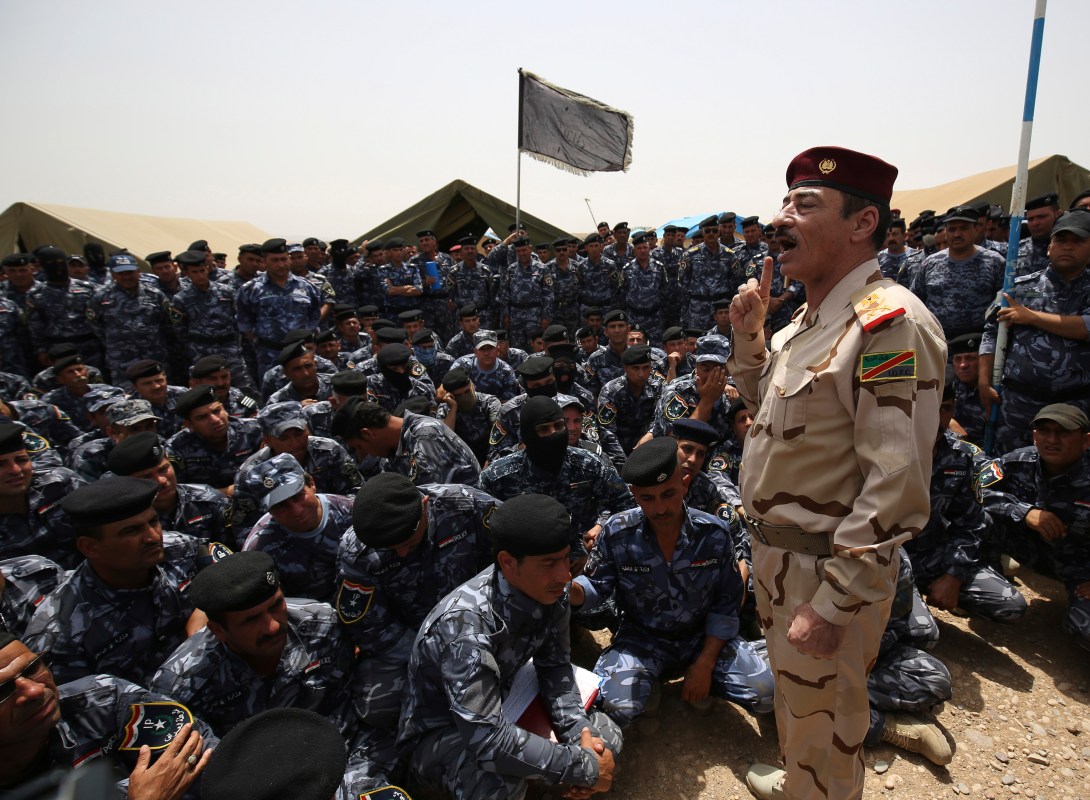MOSUL, IRAQ — As we inched through the war-torn streets of Mosul City, the only two things I could think about were naps and car bombs. The man I was headed to see, Major General Najim Abdullah al-Jubouri, needed to sleep. With years of constant fighting and ongoing night raids, the general at the heart of the campaign against ISIS was understandably tired. But there I was, stuck in bumper-to-bumper traffic listening to my translator next to me field phone calls from Jubouri’s team, telling them, “We’re almost there!” as we inched along the packed streets.
I was already nervous — it was my first time in Mosul and a car bomb had gone off the week before, killing three and injuring many others. It was the first bomb in Mosul since the city had been liberated from Islamic State’s control a little over a year before. Surrounded by civilians in dense market traffic, exactly the type of target car bombs prefer, I was worried about the physical danger, but even more concerned that I would arrive at the military’s headquarters only to find a napping general.
Jubouri was handpicked by the United States as the man in charge of liberating Mosul, Iraq’s second largest city and the city where ISIS declared their caliphate. An intensely patriotic man, Jubouri was told that removing ISIS would take anywhere from four to 15 years. But through a violently effective campaign using a team of traditional Iraqi units, Iraqi Special Forces, and a coalition of militias and international forces, Jubouri liberated the city in a year and a half.
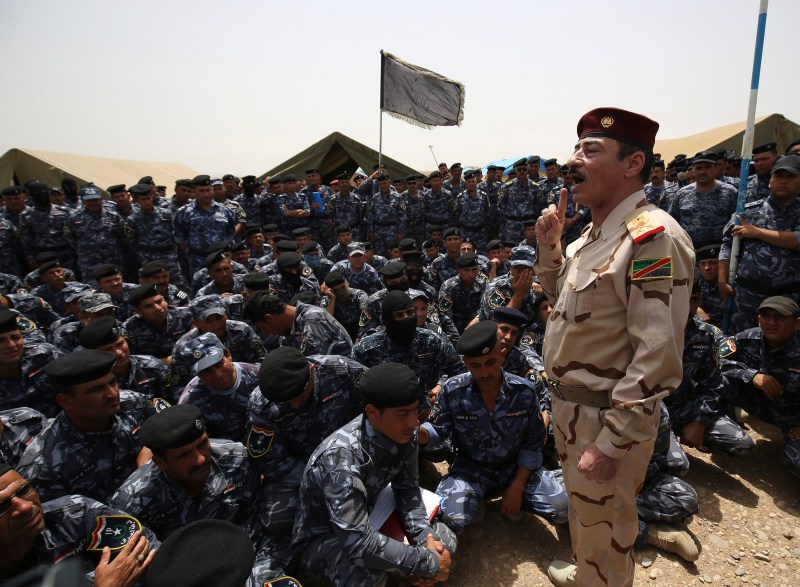
At its peak, ISIS controlled 34,000 square-miles of territory, from western Syria to Eastern Iraq. The extremist group ran their own state, collecting tens of millions of dollars in taxes, according to The New York Times, which they used to “fix potholes, issue birth certificates, finance attacks and recruit followers.” Now, all but one percent of that territory has been taken back, leading President Donald Trump and his administration to say the group is “wiped out” and “in its final throes.”
Iraq is left dealing with the aftermath of these liberations, and the steady flow of news out of the region includes what to do with ISIS wives who want to return to their home countries, the withdrawing of troops from Afghanistan and Syria, and the identification of the narrator in the Islamic State’s infamous videos.
But this recent stream of news has mostly excluded Mosul, which is in desperate need of repair. Between ISIS’s control and later, block-by-block fighting, Mosul is in ruins. In order to save it, Jubouri nearly flattened the physical city. Mosul, which is split by the Tigris River, is filled with bomb craters, bullet holes, and active mines. Buildings that managed to stay upright are missing walls or roofs or are leaning dangerously. The smell of death hangs in the air, as the dead are still being recovered from the wreckage.

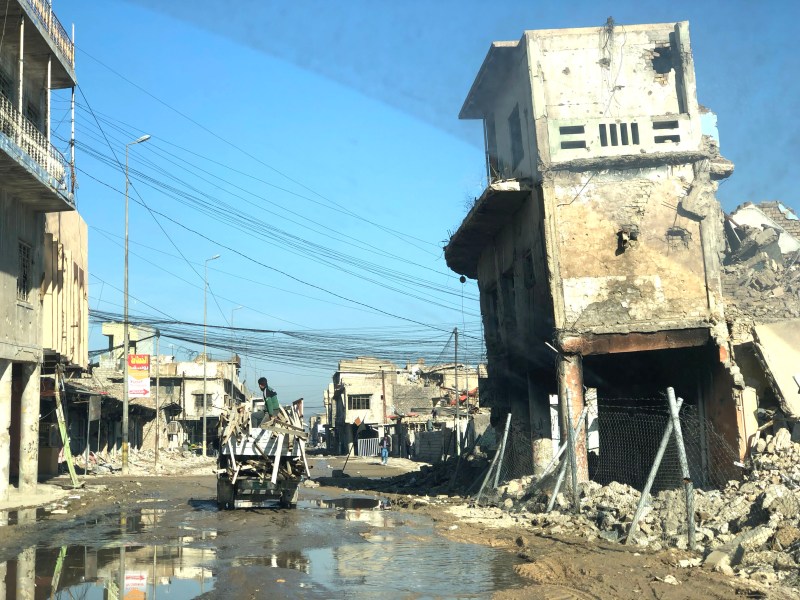
Now, as citizens are starting to rebuild their lives and as Mosul comes back to life, Jubouri is in charge of rebuilding the city he helped liberate. The United Nations estimates that 40,000 homes need to be rebuilt in the city, which would cost an estimated $17 billion, according to CNBC.
The United States has no plans to give any more money to the country, after spending $60 billion in Iraq over nine years. CNBC writes that U.S. government auditors found “massive waste and corruption” of that money.
So what does the man who is tasked with rebuilding the city think? I wanted to understand the man and his mission.
Some originally questioned why he was chosen to lead the liberation. A veteran of the Iran-Iraq war and the 1991 Gulf War, Jubouri is a former member of Saddam Hussein’s brutal Ba’athist military. I met him at his headquarters in Mosul, which are called “ala qusur” or the palaces according to my translator, because they used to be Hussein’s palaces.
But Jubouri left Hussein’s Ba’athist party and became a critical U.S. ally. From 2005 to 2008, during the U.S. occupation of Iraq, Jubouri was the mayor of Tal Afar, an ancient city that Jubouri says he and coalition forces ultimately “cleaned” of al Qaeda extremists during that time. But due to threats on his life, Jubouri and his family fled to the United States for eight years, during which Jubouri studied at the National Defense University in Washington, D.C.

And now, he faces one of his biggest challenges yet: Waging peace in a city that he destroyed in order to liberate.
We conducted the interview in English and Jubouri made a few things very clear: his biggest goals are giving jobs and hope. But the rebuilding of Mosul is about more than just fixing the city, it is also about keeping extremists at bay, who, despite Trump’s declarations, have not disappeared. The Major General is a formal man, and though he speaks at a steady, quiet level throughout our interview, he regularly clapped his hands as if to punctuate his speech for impact.
RG: The idea behind this story is to be about …
The Major General’s phone rings and he ignores it, even though I gesture at him to pick it up. “No, no,” he says and then urges me to continue.
RG: …rebuilding, so the rebuilding of Mosul and with you as the person, kind of profiling you and the fact that you led the offensive and are now leading the rebuild. So I have a couple general questions about how things were during the offensive and how things are now, if that’s okay.
*He starts talking*
Jubouri: “The rebuilding here in Mosul, very slow … our mission, to repair Mosul, we figure we need to win the people. We need to fix the bad relationship between the people and security forces, and we build many bridges between us and the people, and we success. Now here in Mosul, the mood of the people changed … Positive. Now the people accept the culture forces, accept the Iraqi Army. The relationship, mm, I cannot say very, very good, but good. And now, the people are a very important part of the foundation of security in the city.”
“We finish the first step, we clean the city from ISIS, we hold the city, but the third step, and the important step, the rebuilding and give the people hope and jobs, very slow. I saw many people, many families without any source to live. Many people suffer because they not have jobs, their houses are destroyed, the foundation of the city not good, and the rebuilding very slow. And this very dangerous in the mid-term and the long-term. Maybe any bad organization can return back.
And the world, not stand very strong with Mosul. Yes, Germany help us and uh, French help us, and some NGO, United Nation, but all these things, shy thing.”
Jubouri pauses, then sighs.
“Many, many widow women with kids without any resources. Many students in the university, without any resources. Before, three or four weeks ago, we captured a group that worked with ISIS from the university — students, female and male — and when we ask them ‘Why?’ they say because we do not have any resources to live. This, very dangerous. But our problem? The central government, the Iraqi parliament, not understand what will happen if we do not give the people hope.”
RG: “Why do you think they don’t understand, have they not come and seen Mosul?”
J: Many things. One of things maybe the number of Parliament from Mosul not strong enough. Maybe someone in the central government not have long vision, some of them think if they have good weapons, good security forces, that’s enough. And this is a very wrong thing (to think). The security depend on the people, not on the security forces.
**He claps**
Before 2014, we had more divisions, more policemen, more equipment, better than now. But in one or two hour, Mosul fell, because the people were not with the security forces.
RG: Why do you think you were chosen to lead the offensive and to lead this rebuild?
J: Me? Because I had good experience before and I studied after that in the United States and know very well where is the problems.
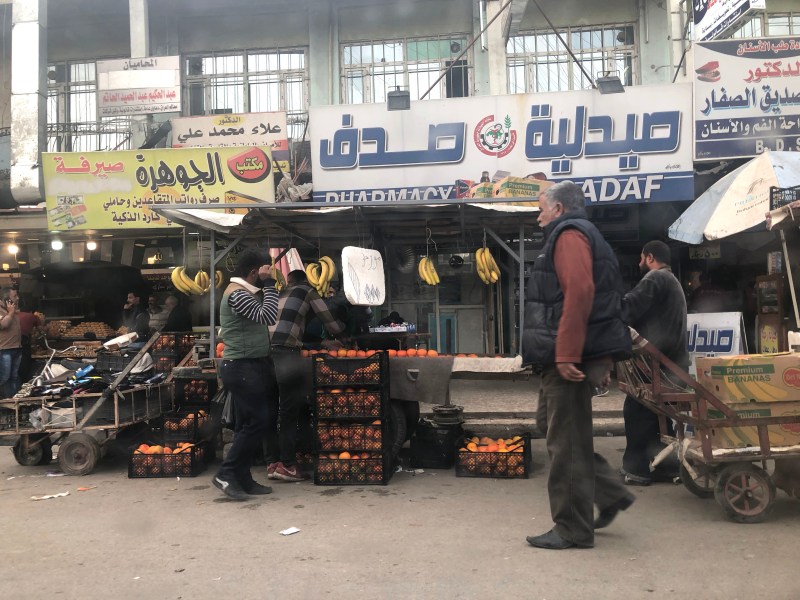
RG: How do you take the steps to give people hope? What steps are you taking now?
J: I stand with them, I always encourage them, I talk with them, I give them hope. I talk with many ambassadors, I talk with the Belgian ambassador, with the German ambassador, with the French, the U.S. ambassador, to encourage them to help us. And I talk with many professionals from central government and local government.
We need investment here in Mosul, not just depend on central government. But until now, they stop the investment in Mosul, they’re not encourage the investment and this very wrong thing. Mosul, very important city. The second city after Baghdad and the location of Mosul, very important. Turkey, Syria, Kurdistan and the people in Mosul have good skills and many things and they have good manufacturing, Mosul has oil and many, many things.
RG: Why do you think you’re not receiving international help, with, you know everybody in the world knows what happened?
J: I think … because of the corruption. Many countries, many countries don’t like to give money to the local government because they’re afraid from the corruption. They want to do the projects by themselves. And many people also, work against Mosul, they talk in the media “the situation in Mosul not good, the situation blah blah blah blah.” And you know, the foreign cities, free to come to Mosul and also, many local governments they want to take money, they’re not allowed to project by another country.
RG: So, do you feel like your troops have inspired people in Mosul to feel safer?
J: Yes, I think the relationship good and the people touched with security. But Mosul, the people because have bad experience with ISIS, they stayed about 3 years under ISIS and ISIS very aggressive people, they until now afraid that if they heard any rumor, they they — he presses back, looks frightened — because that, I hate many member of Iraqi parliament from Mosul, they say “ISIS will come back, ISIS, ISIS, ISIS” and the people afraid from that. We need to give them moral, not make their moral down.
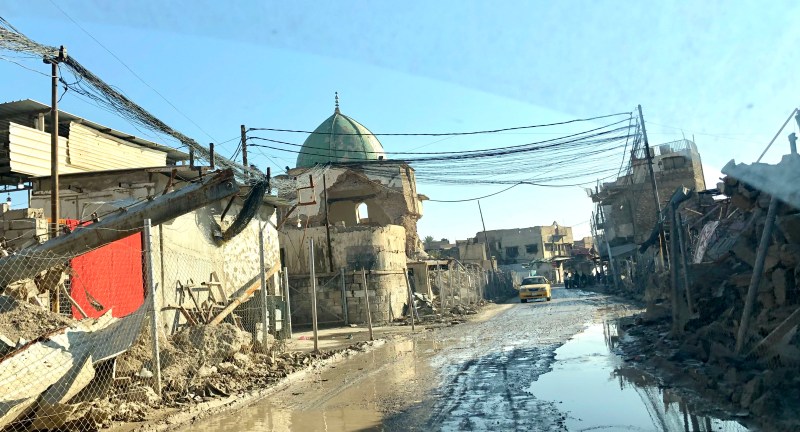
ISIS will not come back. ISIS destroyed. Destroyed. Yes, maybe some sleeping cells here or in the desert, somewhere, but ISIS destroyed, not return back. But this depend on how much we protect the people and put them with us. If you’re (a) mother and you have many kids and you saw your kids without clothes, without medical insurance, without food, how many you come, be patient? 1 month, 6 months, 1 year, 2 year? You need to see light in the end of the tunnel.
**He claps his hands**
This is the case.
RG: ISIS was hard to get out of Mosul, correct? Why? What made it so difficult to liberate Mosul a year ago?
J: Before?
RG: Yes, a year ago.
J: The difficult thing, more than one million still lived with ISIS, and that lead us to work like very sharp surgery to lift the cancer from the button. This was a very difficult mission, very difficult. Many monitors said “Mosul needs four years” and some of them said “Maybe more than 15 years” to break Mosul from ISIS. We liberated Mosul in one year.
*He claps*
And this, like miracle.
RG: And, what would you say … I read criticism before the liberation that the Iraqi army was poorly prepared, like you said, people were saying it was going to take four years, what do you have to say about that, clearly it did not take four years, so do you feel your army exceeded expectations?
J: I think … the culture forces especially the American forces help us very much. They used very high technology. They come, and drones make pictures, and we see everything. And they used very high technology of rocket and jet fires.
*He claps again*
This make the moral of our troops high, the moral of ISIS very down. Without the support of culture forces, our mission impossible in Mosul.
RG: Did last week’s bomb at the restaurant scare you at all?
J: What, about the car bomb?
RG: The car bomb, did it worry you?
J: No, this happened here in Mosul … in Baghdad, in east Iraq, in Belgian, but the different thing, the people here, as I told you, had very bad experience with ISIS and some people stand with ISIS in the media and some people still talk about ISIS will return back in Erbil, but … normal, happen anywhere. Anywhere … Happened in Ramada, in Baghdad, common, but we need someone make the moral of the people very high, when you say this: “Normal, happen anywhere,” but if one says, “Oh that means that ISIS will return back, that many hundred of ISIS in and near Mosul, they will attack Mosul,” they make they people afraid and that is the difference.
But I think when I talk with the people and when I go in my missions outside and kill some ISIS in the mountain, in the desert, in the islands, the people return back more comfortable.
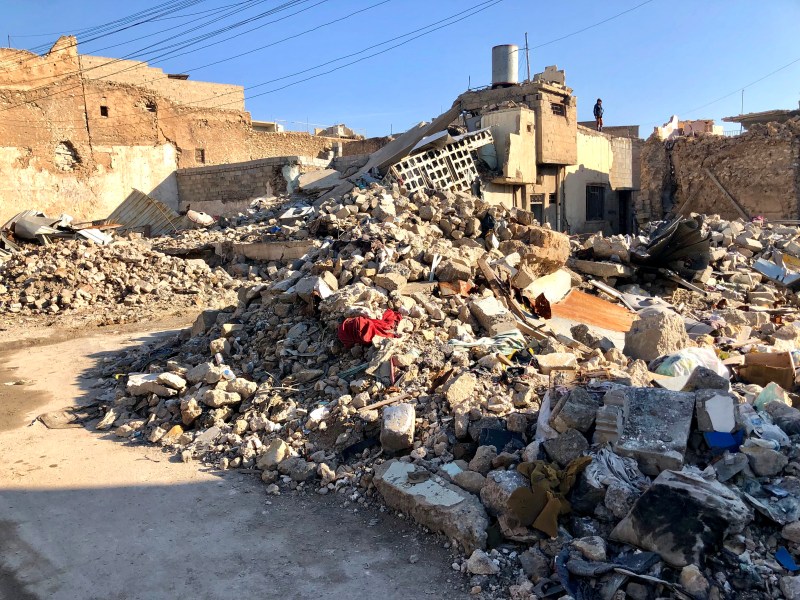
RG: Does religion play a role in rebuilding Mosul at all?
J: What mean religion? You mean Christian, Muslim?
RG: Yes, you know ISIS was basing…
J: Destroying the public, yeah. Now I think day by day, the relationship become healthy. Me always, when I talk, I say I will take care of the Yazidi more than the Christian, and I will take care about Christian more than the Muslim. Here, we Iraqi, not Christian or Muslim or Yazidi. They our people. We like the Yazidi, like anyone, we like the Christian, like anyone. And maybe we prefer the Christian and the Yazidi more than the Muslim, we need them with us.
I think now, day by day, I return many houses of Christian to them, they comfortable with that. And many time in conference in the media, I stand with the Yazidi people, I say, *he claps again* we need to stand with them more than anyone in the city and they comfortable to that, I think. Yes, that’s some politicians’ problems affect making influence, but I think step by step everything return back. But as I told you, we need to give hope, jobs.
RG: Is there anything that the international world gets wrong about Iraq?
J: The international world not stand enough with Mosul. Here disaster happened. And you know ISIS and the bad organizations always lived in the poor area, in the turmoil area. Because of that, I tell them, we need more projects here in Mosul. Look, now we have more maybe three hundred thousand lived in the camps, now we liberated Mosul before one year and a half, not many houses built near to them.
Many people left their houses here and go to the camps because they give them some support, food and electricity and something … because they do not have anything. And the disaster, sometimes the Iraqi government refuse the help because they want to do the project by themselves, I mean the country’s, they want the Iraqi to do the project. For me, I’m not worried who built the hospital, to me, UAE … Saudi Arabia, Germany, I not worried, the people need hospital.
RG: Is there anything that I haven’t asked you about that you want me to know, about Mosul, about you?
J: Look, Mosul, the majority of people, they’re not changed. Now, you can walking in the streets, before 2014, impossible for you to walking in the street. Before 2014, no any Shia student or Christian student can study in the university.
Now, normal. Before 2014, no anyone from the south of Iraq can visit Mosul and walking in the street, now different. The people accept the coalition forces, many foreign companies in Mosul. I think this is a good chance to the west, to the U.S., to the world, to capture this chance and to keep the people with them. Not let the people facing their destination alone.
*He gives a final clap*
This interview has been edited and condensed for clarity.
This article was featured in the InsideHook newsletter. Sign up now.
